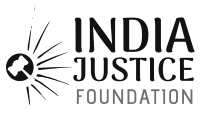-
IJF
The Minimum Wages Act, 1948 – Brief Notes
Minimum wages Act, 1948 extends to the whole of India. The main object of the act is to provide minimum wages to the persons employed in ‘Scheduled Employments’. The capacity of an employer to pay minimum wages is not taken into consideration as decided in U. Unichoy v State of Kerala. The contention of Minimum…
-
IJF
The Child Labour (Prohibition & Regulation Act), 1986 – Brief Notes
The main aim of the Act is to prohibit the employment of children below the age of 14 years in hazardous occupations and employment. According to Section 3 of the Act, in any occupations mentioned under Part A of the Schedule or in any workshop where any process mentioned under Part B of the Schedule,…
-
IJF
The Labour Welfare Fund Act (LWF), 1965 – Brief Notes
The labour welfare fund is a fund i.e. a statutory contribution maintained by individual state authorities. Frequency and amount of contribution are decided by the state labour board. This contribution differs from state to state. In some states like Tamil Nadu, Andhra Pradesh, Haryana etc. contribution to this fund is made annually. It is social…
-
IJF
The Employees State Insurance Corporation Act, 1948 (ESIC)
It is social security legislation which provides benefits in terms of maternity leaves, sickness, injury caused. It is applicable to establishments where 20 or more persons are employed or were employed on any day in the preceding 12 months. It is applicable to employees drawing a salary not exceeding Rs. 21,000 per month. Once the…
-
IJF
The Contract Labour (Regulation & Abolition) Act, 1970 (CLRA) – Brief Notes
The main aim of this Act is to prevent contract labour exploitation in the hands of the contractor or the employer. Contract labours are different from direct labours. This Act is applicable where 20 or more workmen are employed on any day in the preceding 12 months. This Act does not apply to establishments where…
-
IJF
The Employees Provident Funds and Miscellaneous Provision Act, 1952 (EPF)
It is a welfare scheme for the betterment of the employee. A part of the amount is deposited both by the employee and the employer. The amount is deducted by the employer from the employee’s salary and deposited in the provident fund account. The money which is accumulated is given to the employee on retirement…
-
IJF
Shops and Commercial Establishments Act, 1961 – Brief Notes
The Act regulates the working of commercial establishments, charitable trusts, societies, printing establishments, educational institutions that are established for making a profit, premises where banking, stock or share brokerage, insurance is carried on. It also regulates time and conditions of payment, weekly holidays, wages for holidays, working hours, rest intervals, opening and closing hours, deductions…
-
IJF
Under-Trial Prisoners’ Access to Legal Aid
Government To Bear Expenses for Prisoners’ Right to Free Legal Aid and Legal Representation Under Article 39A, eligible under-trial prisoners suffering in jails across India may receive free legal aid. Free Legal aid, which includes legal advice, education and representation, ensures equal access to justice for all regardless of financial weakness, social backwardness or any…
-
IJF
Implementation Failure of Legal Aid Services in India
LEGAL AID To ensure equal access to justice to every citizen unhindered by weak financial positions or social backwardness, the Constitution provides free legal representation to the people in need. National Legal Services Authority and its State and District branches are established by the legislature to implement this objective. They are supported by free legal…
-
IJF
Child Rights and How to Report Child Abuse
Why Child Rights? The United Nations Convention on the Rights of the Child (UNCRC) defines a child as a human being below the age of 18. Since children are considered possession of parents in our society and they entirely rely on adults for the fulfilment of all basics needs, they become prone to abuse and…
Category
- AI for Lawyers (1)
- Analysis (1)
- Articles (49)
- Blog (3)
- Case Laws (598)
- English for Lawyers (5)
- Events (14)
- Interviews (1)
- News (99)
- Resources (1)
- Uncategorized (15)
Recent Post
- English for Lawyers: Day 5 – Mastering Effective Legal Writing with AI for Lawyers: Interactive Challenge!by IJF
- English for Lawyers: Day 4 – Mastering Legal Writing and Draftingby IJF
- English for Lawyers: Day 3 – Arguing Lack of Meritby IJF
- Understanding Your Rights: Arnesh Kumar Guidelines and Police Arrest Powers in Indiaby IJF
- English for Lawyers: Day 2 – Expressing Lack of Knowledge or Awarenessby IJF






